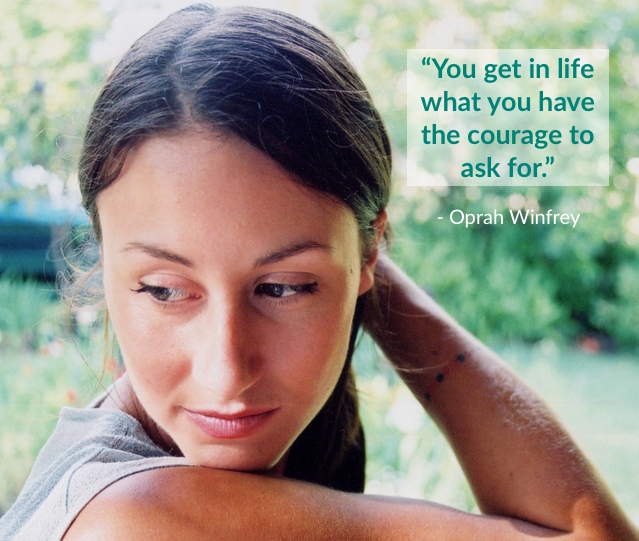Real talk with the women behind the Women’s Money Lab about Money Silence, Financial Wellness, and releasing Money Shame
It’s awkward for me to be writing this profile and quizzing two confident, money-savvy women with long careers in finance. At least that’s the story I tell myself as I consider how I will juggle a few of this month’s bills and keep my credit score in good standing. After years of full-time employment and a steady paycheck, I’m finding my life as a self-employed freelance writer a…challenge.
Truth is, I have never been great with money. I WAS great at making it — and spending it. But not so much in managing it. So I come to this Q&A interview filled with my own mix of Money Shame. I wonder, aloud, ‘what if they get someone like me in their Lab—someone easily triggered around the subject of money?’
Cynthia Zeltwanger (CZ): I hope we do! It depends on the trigger and the circumstance. But, by virtue of the fact that you would sign up tells me that you are open and interested in learning and experimenting with setting some goals.
We’re not going to have judgment about what your financial situation is or whether your goals are ‘lofty enough’ or ‘sensible enough’. That is not our motivation. There is enough judgment that goes around in the world. We just want to support any goal a woman might have around money and provide some helpful information in the process. .
And if you come and say: ‘I don’t want to have any goals around money’…I don’t know. We’ll have to figure that out by asking what you would like to get out of the program. It might be just to have a different perspective. Who knows?
I relax. This makes me feel safe. Which is key for W$L. Zeltwanger and co-founder, Nancy Kaplan designed the Lab as a safe environment for women to share, discuss and support each other as they examine their own relationship with money and set financial goals.
With that, the interview begins.
So, why are you doing this—the Lab? What inspired you?
Nancy Kaplan (NK): When the idea first came up, I jumped at it. It’s an opportunity to use everything I’ve learned over the years to help other women understand their financial circumstances and find ways to make their lives better.
I see the Lab as being educational but also motivational. Supportive. It is a mindful approach to money. Just being ‘aware’ of what triggers us to spend money on something we don’t necessarily need, for example. Learning about the motivation behind it and how to stay in control.
CZ: Agreed! I believe there are two high-impact areas where women can specifically benefit from that combination of information and the support of others to fully realize their own power:
One: understanding and developing their own authentic leadership. That’s what we do with Women’s Leadership Lab. (Zeltwanger is also the co-founder of WLL which shares the same grounding principles to create a safe environment for participants.)
Two: understanding their value — and how to be paid for it — along with being good stewards of their money. And that’s how we hope to contribute through W$L.
I think making good financial choices helps women have more choices in general. So I’m just passionate about empowering women. And having them understand and be able to manage their money is another big way of empowering women.
What first influenced each of you, when it comes to money?
NK: When I was a child, my mother was sick quite a bit and we had a lot of medical expenses. My father worked a lot. I don’t remember my parents discussing money too much in front of me, but I remember there being kind of a tension about spending money. And I think because of that, once I was old enough, I started working and only wanted to spend the money that I made.
The other thing is— I was what they called in those days, a ‘tomboy’. I wanted to play Little League and they wouldn’t let girls play. So I grew up feeling like the men were the ones who made the money. The men were the ones who did really cool things. I didn’t want to be a man. But I wanted to be able to make my own choices and DO those things. And, to do that, I felt like I had to have my own money.
CZ: I grew up on a farm. So very early on we had these projects and the results of some would be sold for money. My parents took us to the bank to open a savings account. They were always pretty insistent that we understood money and how to make choices regarding our money. (At a certain point) I told them to keep my monthly allowance. I wanted to make my own decisions and related receiving money from them as a way of controlling my choices. I was going to get a job and I was going to be responsible for my own stuff. And I did.
It’s the first memory I have of being clear for me that having my own money meant independence. And it still does. That’s big for me.
Where do you see women right now—in terms of managing money? What are the big issues?
CZ: I’m reluctant to answer that question broadly, ‘for all women’. Obviously, it’s very different for everyone. That said, there are things that many women have in common. Number one: awkwardness in talking about money. Even young women today tend to be socialized not to talk about money — not to talk about how much they make. This has been called ‘Money Silence’ and it really makes it much more difficult to understand our financial value, and share and be supportive around money. So we try to ignore it, hoping (because it’s so uncomfortable) it will just go away.
But it’s not going away. I think the stats are something like 70% of women will be wholly responsible for their financial well being at some point in their life. THAT is a stat rarely talked about.
Today, there is still not enough support for both women AND men in our culture around finances. And we’ve basically gotten rid of any pensions so people are somehow supposed to magically understand how to organize their life so they can have some kind of retirement savings and meet other financial goals. And that’s ridiculous because there’s generally little to no support for them other than a 401k — IF they are lucky enough to have one. And there’s really no support about what it is or how to be effective in managing that, as well.
How is W$L different from other financial programs out there?
NK: Couple things: One, most programs providing financial information and support are trying to sell financial service products. That’s not a bad thing. It’s a service and a business and completely legitimate. But we are not in the business of selling financial services advice. We are in the business of providing education and support for women in their financial lives. And we want to be free of any conflict of interest with respect to making money off of financial products W$L participants may choose to utilize.
Second, there are a number of really good online educational programs about money. Yet despite the fact that those have been available for a long time, a great percentage of Americans report that they are not at all confident about their financial future. And even when they have read or heard about what they ‘should’ do, they aren’t doing it.
That’s where the Lab is different. We describe our approach as a combination of education and motivation around setting financial goal/s in the company of other women who are doing the same. Whatever goal is right for you, W$L creates a safe, supportive space in which to reach it.
CZ: And it isn’t just about reaching a specific goal. The Lab also provides information and coaching that supports the overall understanding of your Financial Wellness. And just as important, we all learn from each other just by sharing and talking about our money concerns. That’s rare. Not talking about money makes us feel alone. and often foolish “Oh, I don’t budget well” or “I don’t save” or “I spend too much” or… whatever the issue.
But here, we discover we’re all pretty much in this soup together and we can stop with the Money Shame so we can be much more compassionate with ourselves about how difficult this is. Because, it IS difficult, particularly in a consumer society where everything is telling you all the time that if you spend this money you are now going to have the life you want.
So, taking some of the judgment out of it and being compassionate in a group where other people are also struggling — having success some days and failures others — it’s more motivating rather than just feeling like ‘this is so overwhelming and impossible, I just give up.’



